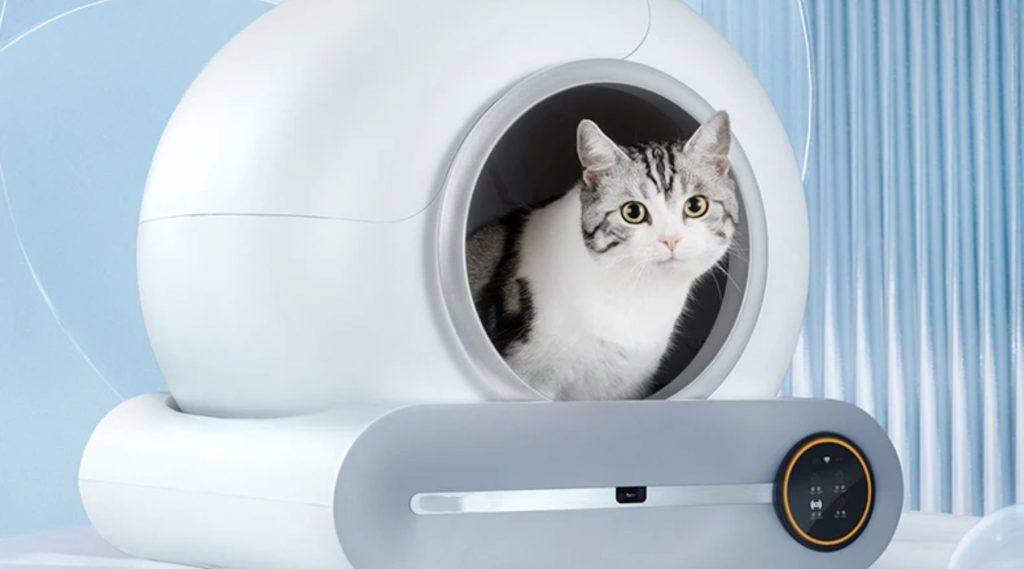Have you ever wondered, “Why does my cat meow in the litter box?” If you’re a cat owner, you’ve likely observed your furry friend exhibiting this peculiar behavior. At first, it might seem strange or even concerning. Cats are known for their independent and often mysterious nature, so when they start vocalizing in unexpected places, it’s only natural for us to take notice. But don’t worry—there are plenty of reasons behind this feline quirk, and most of them are completely normal. Let’s dive into the world of kitty communication and uncover the secrets behind these curious meows.
The Intricacies of Cat Behavior
Understanding Cat Communication
Cats might not speak our language, but they know how to communicate their point. Cats express a wide range of emotions and needs through vocalizations, body language, and actions. Here are a few common types of cat vocalizations and what they typically mean:
- Meowing: Generally directed at humans, meows indicate hunger, a desire for attention, or simply a greeting.
- Purring: Often a sign of contentment, but it can also indicate pain or discomfort.
- Hissing/Growling: Signals fear, aggression, or territorial behavior.
- Trilling/Chirping: Usually a friendly greeting or an invitation to follow.
Understanding these sounds helps us interpret why a cat might meow in specific situations, including the litter box.
Why Does My Cat Meow in the Litter Box?
This question might leave you scratching your head. After all, the automatic cat litter box is a business place, not chit-chat. However, several reasons could explain why your cat meows in the litter box:
- Medical Issues: One of the most critical reasons to consider is a potential health problem. If your cat is meowing while in the litter box, it could be experiencing pain or discomfort while urinating or defecating. Conditions like urinary tract infections, bladder stones, or constipation can make using the litter box painful.
- Behavioral Reasons: Cats are creatures of habit and can develop certain behaviors in response to their environment or experiences. A cat might meow in the litter box out of anxiety, marking its territory, or simply because it’s a habit they’ve formed.
- Attention Seeking: Cats quickly learn that meowing gets their owner’s attention. If they feel neglected or want some extra love, they might choose a spot where they’re sure to be noticed—like the litter box.
- Communicating Needs: Sometimes, your cat might be trying to tell you something important. Perhaps the litter box is dirty, or the location isn’t suitable. Meowing can be their way of communicating these needs.

Health Concerns: When to Worry
Signs of Urinary Issues
If your cat’s meowing in the litter box is accompanied by any of the following symptoms, it might be time to visit the vet:
- Frequent trips to the litter box with little to no urine output.
- Straining or crying while urinating.
- Blood in the urine.
- Excessive licking of the genital area.
These signs could indicate serious conditions like urinary tract infections, bladder stones, or even feline lower urinary tract disease (FLUTD). Prompt veterinary attention is crucial.
Digestive Troubles
On the other hand, if the meowing happens during defecation, it might point to gastrointestinal issues such as constipation or diarrhea. Look for signs like:
- Hard, dry stools.
- Infrequent bowel movements.
- Straining or discomfort while passing stool.
- Soft, runny stools or diarrhea.
Again, a vet visit is advisable to rule out any serious underlying conditions.
Behavioral Explanations
Stress and Anxiety
Cats can be sensitive creatures, and changes in their environment or routine can cause stress. New furniture, a different type of litter, or the presence of other pets can all contribute to anxiety. This stress might manifest as meowing in the litter box.
How to Reduce Stress in Cats
Here are a few tips to help your cat feel more at ease:
- Maintain a consistent routine for feeding and playtime.
- Provide plenty of hiding spots and high perches.
- Use pheromone diffusers to create a calming environment.
- Ensure the litter box is in a quiet, low-traffic area.
Territory Marking
Cats are territorial animals, and meowing in the litter box might be a way of marking their territory. This behavior is more common in multi-cat households where competition for resources can lead to such displays.
Habitual Behavior
Sometimes, a cat might meow in the litter box simply because it’s become a habit. If this behavior started due to a past issue (like a dirty litter box), the cat might continue doing it even after the problem is resolved.
Ensuring a Happy Litter Box Experience
Choosing the Right Litter
Believe it or not, the type of litter you use can make a big difference in your cat’s comfort and behavior. Cats can be picky about their litter, so experimenting with different types might help reduce meowing.
- Clumping vs. Non-Clumping: Some cats prefer the feel of clumping litter, while others do better with non-clumping varieties.
- Scented vs. Unscented: While scented litter might be more pleasant for humans, many cats prefer unscented litter as it mimics their natural environment.
- Texture: Fine-grained litters are often more comfortable for cats than larger, coarser grains.
Litter Box Maintenance
A clean litter box is crucial for a happy cat. Ensure you scoop the litter box daily and change the litter regularly to maintain cleanliness and reduce odors. Consider having one more litter box than the number of cats in your household to prevent territorial disputes and ensure easy access.
Placement Matters
The location of the litter box can also impact your cat’s behavior. Cats prefer quiet, private spaces for their bathroom needs. Avoid placing the litter box in high-traffic areas or near loud appliances.
FAQs
Why does my cat only meow in the litter box at night?
Your cat might be more active or feel more vulnerable at night, prompting it to meow in the litter box. Ensure the litter box is easily accessible and the environment is calm to help reduce nighttime meowing.
Can diet affect my cat’s litter box behavior?
Absolutely. A poor diet can lead to digestive issues, which in turn can cause discomfort during elimination. Make sure your cat is on a balanced diet suitable for its age, health status, and activity level.
How can I tell if my cat’s meowing is due to pain?
Pay attention to other signs of distress, such as changes in eating or drinking habits, grooming, and general behavior. If your cat’s meowing is persistent and accompanied by other symptoms, a vet visit is essential.
Is it normal for kittens to meow in the litter box?
Kittens might meow in the litter box as they’re still learning and might be seeking reassurance or expressing confusion. This behavior often resolves as they become more accustomed to their routine.
Conclusion
So, why does my cat meow in the litter box? While the reasons can vary from health issues to behavioral quirks, understanding your cat’s specific signals and needs is key. By ensuring a clean, comfortable litter box and paying attention to your cat’s overall behavior, you can help create a happier, healthier environment for your feline friend. Remember, when in doubt, a trip to the vet can provide peace of mind and ensure your cat’s well-being. Happy cat parenting!
